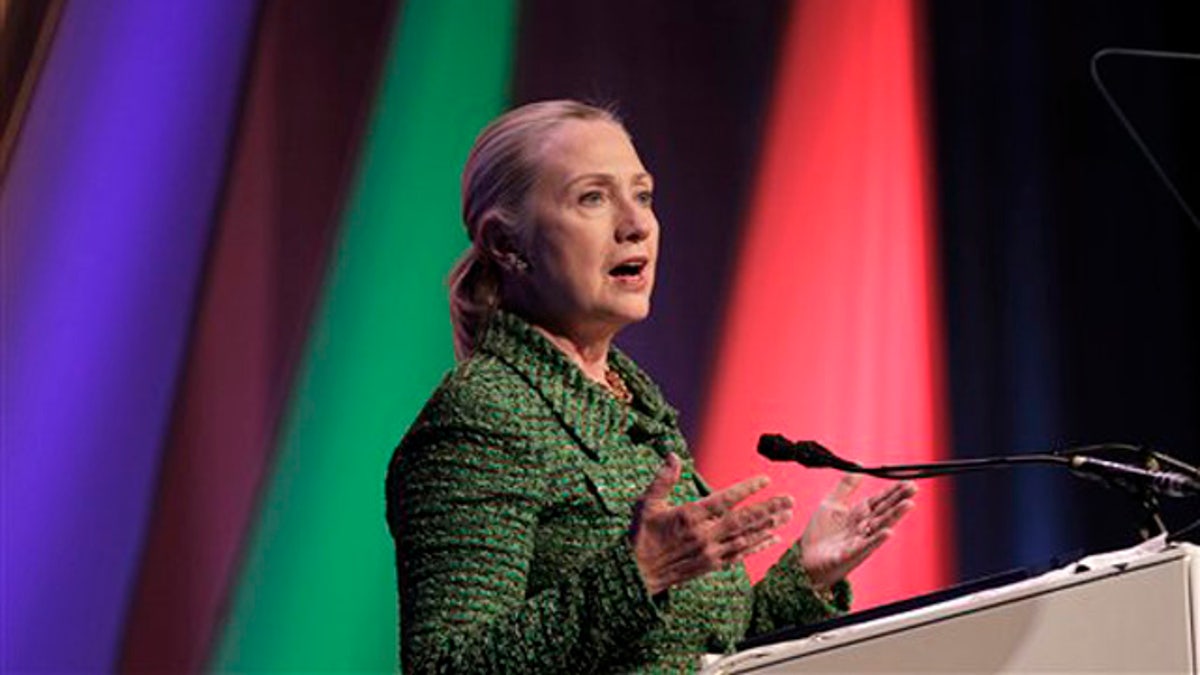
Dec. 8, 2011: Secretary of State Hillary Clinton delivers a speech at the Conference on Internet Freedom in The Hague, Netherlands. (AP)
U.S. troops are on track to leave Iraq before the end of December, but the U.S. involvement there is anything but over -- meaning local resistance to Americans, and the security challenges that come with it, will continue.
In place of the military, the State Department will assume a new role of unprecedented scale, overseeing a massive diplomatic mission through a network of fortified, self-sufficient installations.
After the troops have left, the U.S. presence in Iraq-which peaked at 170,000-will number between 15,000 and 16,000, including federal employees and private contractors.
Federal officials are busily signing hundreds of millions of dollars in contracts for on-site health care, food, protection and other needs, so that American personnel can steer clear of a perilous security situation on Iraq's city streets.
The State Department will hire more than 5,000 private security contractors for armed details and has contracted with a private service to ferry U.S. personnel in helicopters and planes.
The State Department will command four major diplomatic centers and seven other facilities, a total of 11 sites around the country. The tab will be around $3.8 billion for the first year, far above the operating cost of any other U.S. diplomatic mission-but far lower than the more than $40 billion in U.S. spending budgeted for fiscal 2011 in Iraq.
With the new mission, U.S. officials hope to redefine a strategic relationship that has rested for nearly nine years almost solely on war. They say they will work with Iraq's central bankers, justice officials and agriculture experts, while trying to improve its police and armed forces.












































